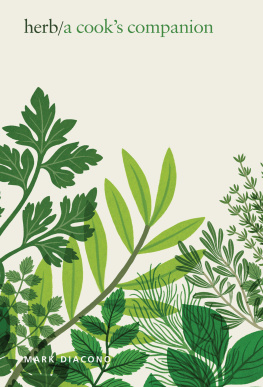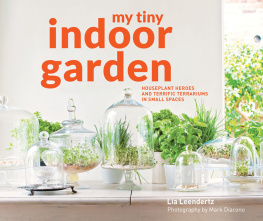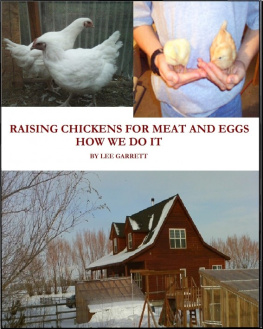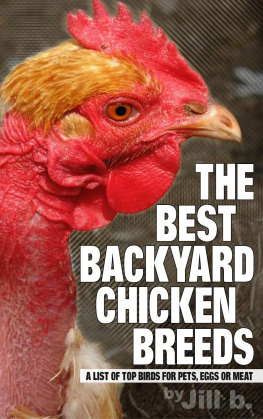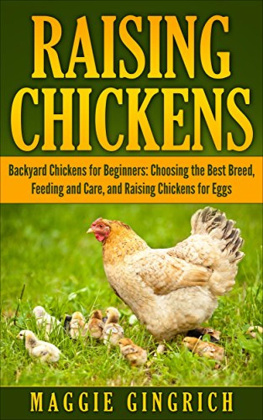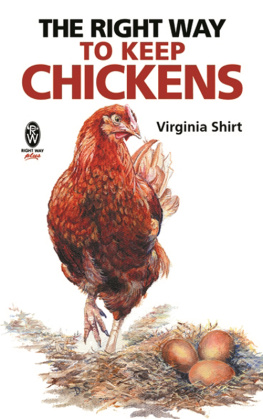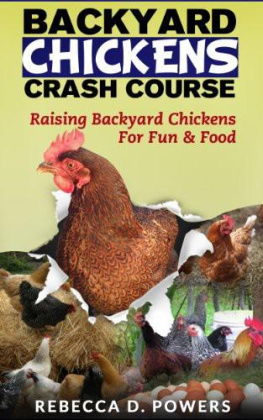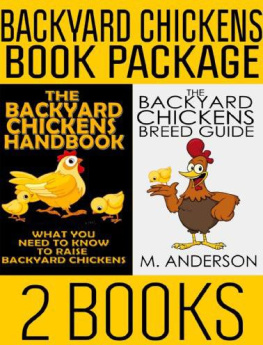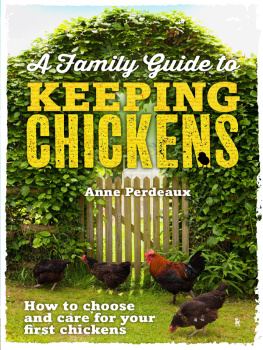
For my sister, Rachel
Bloomsbury Publishing
An imprint of Bloomsbury Publishing Plc
50 Bedford Square
London
WC1B 3DP
UK
1385 Broadway
New York
NY 10018
USA
www.bloomsbury.com
This electronic edition published in 2018 by Bloomsbury Publishing Plc
BLOOMSBURY and the Diana logo are trademarks of Bloomsbury Publishing Plc
First published in Great Britain 2013
Text 2013 by Mark Diacono
Photography 2013 by Mark Diacono
Illustrations 2013 by Toby Atkins
Mark Diacono has asserted his right under the Copyright, Designs and Patents Act, 1988, to be identified as Author of this work.
All rights reserved
You may not copy, distribute, transmit, reproduce or otherwise make available this publication (or any part of it) in any form, or by any means (including without limitation electronic, digital, optical, mechanical, photocopying, printing, recording or otherwise), without the prior written permission of the publisher. Any person who does any unauthorised act in relation to this publication may be liable to criminal prosecution and civil claims for damages.
For legal purposes the and photography credits constitute an extension of this copyright page.
No responsibility for loss caused to any individual or organization acting on or refraining from action as a result of the material in this publication can be accepted by Bloomsbury or the author.
British Library Cataloguing-in-Publication Data
A catalogue record for this book is available from the British Library.
Library of Congress Cataloguing-in-Publication data has been applied for.
ISBN: 978-1-4088-1791-9 (PB)
ISBN: 978-1-4088-9663-1 (eBook)
Project editor: Janet Illsley
Designer: Will Webb
Illustrator: Toby Atkins
The publishers would also like to thank Sam Carlisle for his assistance.
While every effort has been made to ensure the accuracy of the information contained in this book, in no circumstances can the publisher or the author accept any legal responsibility or liability for any loss or damage (including damage to property and/or personal injury) arising from any error in or omission from the information contained in this book, or from the failure of the reader to properly and accurately follow any instructions contained in the book. The recipes supplied in the book are for personal use only. No recipe may be used for commercial purposes without the express permission of the author.
www.rivercottage.net
To find out more about our authors and their books please visit www.bloomsbury.com where you will find extracts, author interviews and details of forthcoming events, and to be the first to hear about latest releases and special offers, sign up for our newsletter.
Contents
If youve spent any time watching chickens ranging free in a friends yard or garden, beady-eyed and bouffant as they cluck and fuss, peck and preen or just run away from you it might not be immediately obvious that they are highly political creatures. Okay, its unlikely youll ever see them in slogan T-shirts and dubious woolly hats, bearing placards and marching on Westminster chickens have always had trouble with organised group protest, so weve had to do it for them. And done it we have, because these endearing birds, and the eggs they lay, are at the cutting edge of the current debate about food.
I cant think of any other farm animal (although the pig comes close) that so comprehensively encompasses all the tricky issues that relate to what and how we eat in the developed world now. Animal welfare, intensive farming, organics, food wastage, our attitude to meat-eating, the power of multinational conglomerates, the power of the consumer to change all of the above its all here, in an eggshell.
Im not suggesting, of course, that this is principally intended as some kind of polemic. Its not. Its a confidence-inspiring, witty and beautifully written handbook that will tell you all you need to know about keeping your own chooks. Nevertheless, the way I see it beyond its practical use it is fighting its own corner in the ever-challenging world of food politics. Because once you are looking after chickens, and have the wherewithal to produce eggs and/or meat for yourself, at home, you can take a meaningful step in life: a step away from anonymous, soulless, mass-produced, poor-quality food, and towards the satisfaction and fulfilment of a more self-reliant approach to feeding yourself and your family.
So as well as plying us with valuable and engaging information, I feel Mark is also making us aware that deciding to keep your own chickens is a significant act a peaceful but potent protest against our food production system as it currently stands. I dont have the stats to prove it, but Id confidently bet that chicken keepers are more than averagely likely to source the rest of their food closer to home, and higher up the welfare ladder. I sense this because its clear that chicken keeping is no longer the sole preserve of rural-dwelling smallholders. Increasingly there are suburban, urban and, who knows, maybe even a few high-rise chicken keepers. Most of us know somebody whos taken the poultry-rearing plunge.
Enthusiasm, an enlightened attitude to food and a healthy appetite for good things may inspire you to take up chicken keeping, but they wont get you through the enterprise unaided. Taking charge of a living creature is always something to be done with care and forethought, and it would not be responsible to start keeping chickens without doing some research first. Thats where this book comes in.
Marks expertise, delivered in his warm and accessible style, will fully inform you about choosing, keeping and caring for chickens, whether for eggs or meat, or both. From choosing a breed and constructing a henhouse to slaughtering your own birds and preparing them for the kitchen, everything is covered.
When I first started keeping chickens at the original River Cottage over 15 years ago, I was amazed at how much pleasure it gave me. I immediately felt empowered and more connected to the land around me. I also had the deep satisfaction that comes from knowing your birds are contented and able to express their full range of instinctive natural behaviours. Good husbandry and free living is fundamental to the feel-good factor of raising your own livestock, on however small a scale: they feel good, so you feel good about eating them. Add to that the knowledge that the eggs and meat are as good as it gets not just free of the chemicals and antibiotics that are often routine in intensive systems, but also higher in certain nutrients (omega 3s, for example) than the standard products of an industrial approach.
Its an overwhelming case, isnt it? And its fun too. These birds are fascinating to observe and easy to look after and its hard not to be fond of any creature that produces a fabulous fresh egg for your breakfast on a fairly regular basis. Ive had a flock for almost two decades now and I really couldnt imagine life without them.
And I know Mark feels the same way. Ive known him for a decade now, and Im constantly discovering (with only the mildest envy and irritation) that his talents and experience extend far beyond the amazing work he did during his period as head gardener and course tutor at River Cottage. He has, of course, two previous River Cottage handbooks to his name (Veg Patch and Fruit), which are as enjoyable to read as they are authoritative. With this third volume, he completes a kind of earthy triptych on the joys of a more self-sufficient life. He also runs his own highly successful organic smallholding, Otter Farm, not far from me in East Devon. So, whether you intend to launch yourself wholeheartedly into the adventure of raising your own food, or merely dabble in the shallows (youll get fully hooked in the end, believe me), there really couldnt be anyone better placed or better qualified, nor more passionate to be your guide, than Mark.


